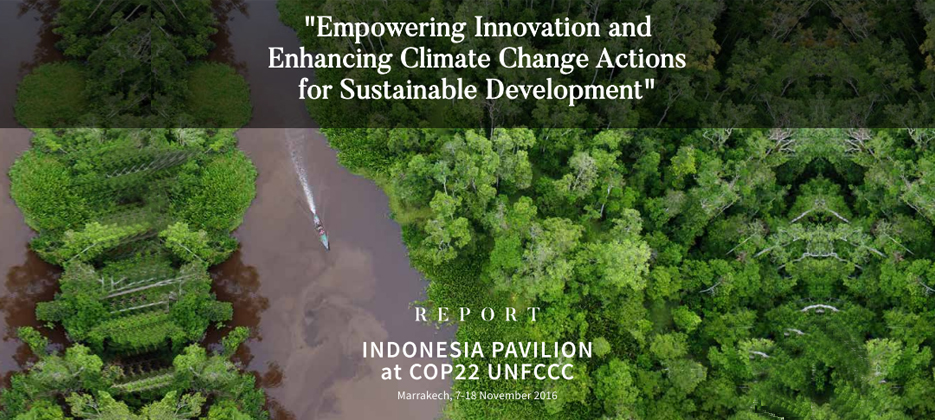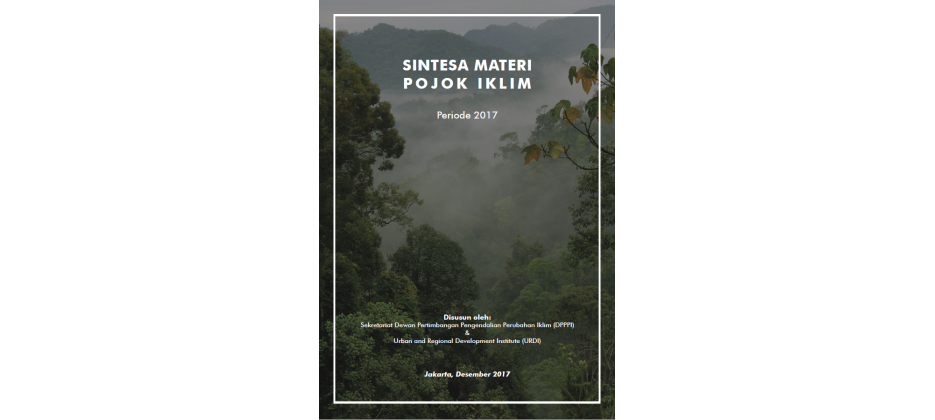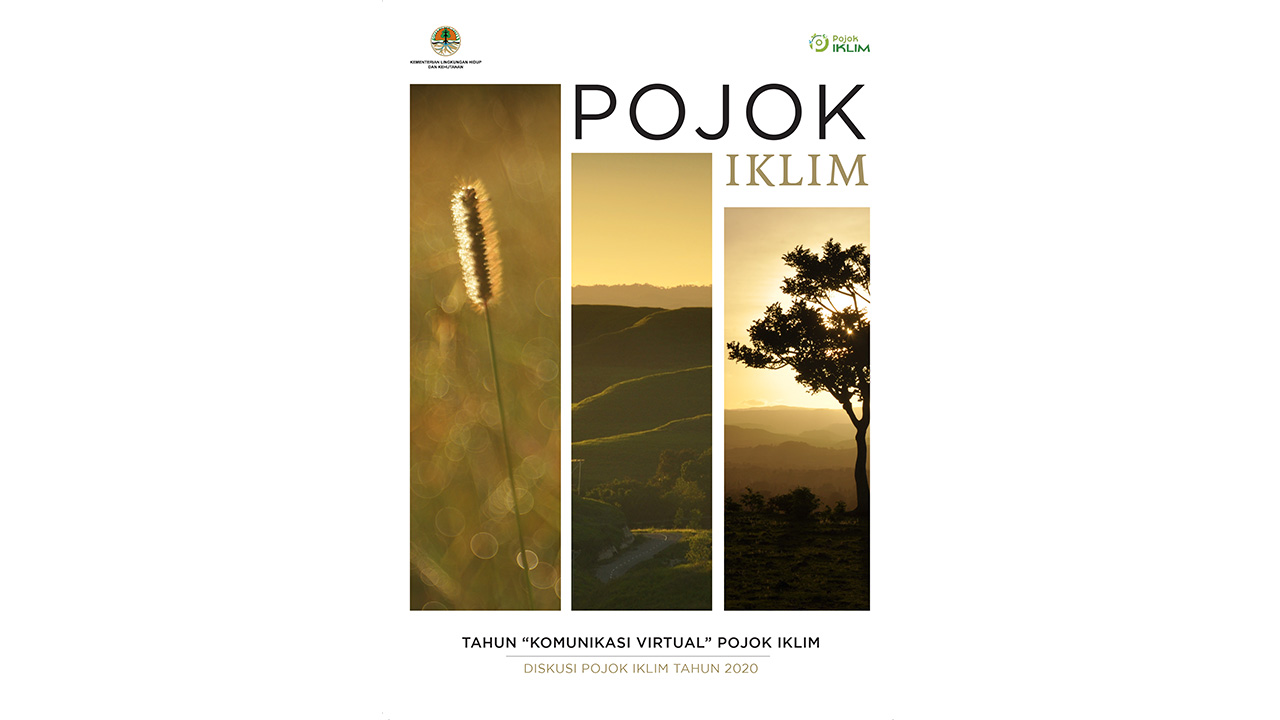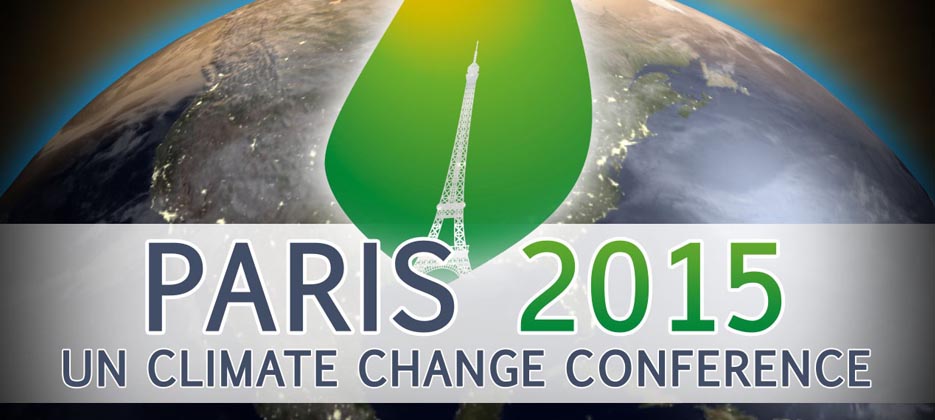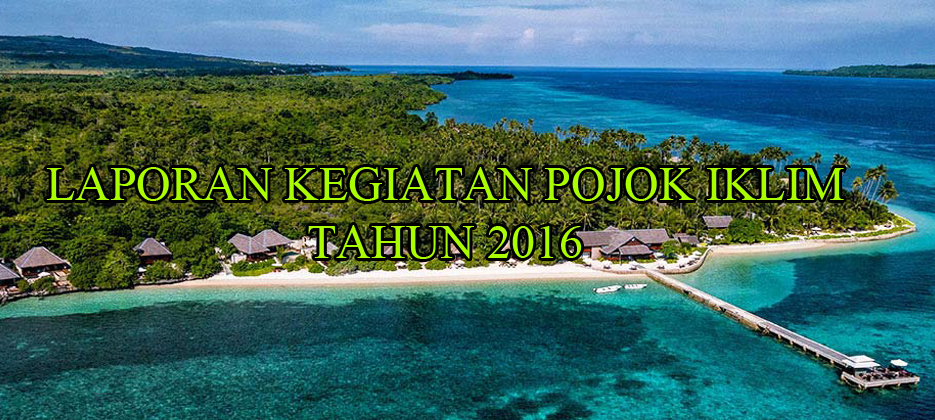EXECUTIVE SUMMARY
Climate change is an issue that may not seem so obvious, since it does not sound an alarm or can be seen withour bare eyes. The consequences of climate change have actually taken place in home country seeing theirregularity of climate pattern and frequent natural calamities such as floods and landslides. As enshrined in theParis Agreement, the world community agrees that climate change is a global issue that needs to be addressedby every country in the world. The world agrees that rapid accumulation of carbon dioxide in our atmosphereor the impending rise in sea levels, will risk our lives, and yet if we fail to reduce heat-trapping emissions, we will cross a threshold, and changes in our world will be irreversible.
As an archipelagic state with extensive low-lying areas, Indonesia is highly vulnerable to the adverse impactsof climate change. Indonesia has already experienced extreme climate events such as floods and drought, and will likely see long-term effects from sea level rise. As the Indonesian population grows, climate change-inducednatural disasters will impact a greater number of people and their assets, making it more difficult for them to rise out of poverty. As being observed that climate change will increase the risk of hydro-meteorological disasters,which make up 80% of disaster occurrences in Indonesia. The poorest and most marginalized populationstend to live in high-risk areas that are prone to flooding, landslides, sea level rise, and water shortages during drought. Most of these areas have experienced rapid urbanization, reaching 50% in 2010.
Indonesia, as part of the world community, believes that any essential efforts are pivotal to mitigate and also adapt to the climate change. The Indonesia's strategic development goals of Nawacita ”Nine AgendaPriorities” aligning Indonesia's vision as a politically sovereign and economically self-reliant nation with deeproots in its cultural identity. These priorities are consistent with the national commitment to climate change resilience. Climate change will affect our lives, our food, our national security, our water, our ability to live wherewe choose, and other basic human needs. Therefore, climate resilience is a basic and fundamental issue thathas to be addressed. With these basic reasons, Indonesia takes significant steps and Real Actions to address adverse impacts of climate change. All the Indonesian stakeholders, at national and sub-national level, areconsistently perserving to limit the magnitude of climate change impacts by lowering carbon dioxide emissionsas well as to adapt to the unavoidable impacts of future climate change. Indonesia believes that climate changecarries serious consequences both for humans and for ecosystems.
As a form of an outreach campaign and diplomacy, Indonesian government organized the Indonesia Pavilion with the main theme Empowering Innovation and Enhancing Climate Change Actions forSustainable Development.
The Indonesia Pavilion presented achievements and lessons learned on climate change policies andprogrammes in Indonesia through a various programmes including 50 sessions of panel discussions, dialogues,networking events and cultural performances. Numbers of national and international eminent speakersrepresented various stakeholders including governments, parliament, academics, NGOs, civil societies, privatesectors, local communities, and youth. The Real Actions of Indonesia Pavilion presented the real actions addressingclimate change. On the first week, the pavilion presented climate change urgency for actions, climate resilience,and climate change instruments that have been developed, particularly related to policy, changing of lifestyle,and best practices. Based on these instruments, Indonesia would like to echo that all efforts need to be peoplecentered and applied through participatory process. With a total of 120 million hectares of forest areas, or 63%of Indonesia terrestrial area, Indonesia also considers the important role of sustainable forest management,including prevention and suppression of land and forest fire, to tackle the climate change. Therefore, real actionsand activities to combat land and forest fires, efforts on ecosystem restoration, sustainable land use planning,addressing deforestation and social forestry development were presented, including endeavors and technologiesthat have been innovatively developed and applied by Indonesia in energy alternative, transportation sectorand also in industrial manufacturing.
Following implementation of above mentioned various instruments, on the second week of IndonesiaPavilion sessions, development issues and climate change nexus were discussed, including climate changewith the economic and financial instruments, the Sustainable Development Goals, Green Growth and LowEmission Development Policy in several sectors, including agriculture, fisheries and ocean. As to bring ParisAgreement into a real implementation, the Indonesia NDC and its implementation strategy were discussed bystakeholders in a form of political support from parliament, inter-governmental as a pathways towards theIndonesia's Real Actions on Climate Change.
The vast amount of climate-related data from various stakeholders which consists of informationapplication systems, reports, graphics, tables, pictures and videos were put together in the form of integratedinformation technology to ensure interactivity, and to retain visitor's attention. Limited printed materialswere also available to support updated information as displayed on the presented monitors during seminars.The engagements of a wide array of multi-stakeholders, both national and international actors, as speakersor provider of climate change data, have made Indonesia Pavilion rich in knowledge and attracted highenthusiasm from COP22 delegates.

